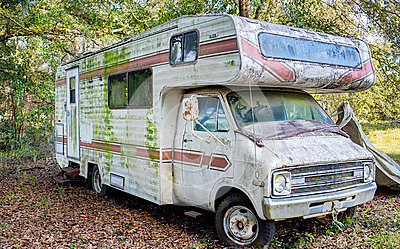“This will be good for panhandlers. Not knowing which are real and which are slot machines, people will increase their contributions to all people asking for a handout, hoping they’ll get lucky.”
Walking for two hours along the Las Vegas Strip one night with my 20-something son, I got to experience Sin City through the eyes of a newcomer. George quickly registered the stark contrasts: the glittery wealth and 24-hour energy of the towering casinos, the hopelessness of the destitute that one sees everywhere, every night, on the strip. Some 30,000 individuals experience homelessness each year in Southern Nevada, according to The Nevada Homeless Alliance. “A Savage Journey to the Heart of the American Dream,” as Hunter Thompson aptly subtitled his famous novel about Las Vegas.
At dinner a few nights later in Los Angeles, while George eloquently described his sadness about the panhandlers, I had a sudden epiphany.
“What if...” I interrupted my son, “the casinos turned some of them into slot machines!”
Before anyone could speak, I fleshed out the idea.
“See, the casinos send out a few of their employees to the Strip, dressed as panhandlers. They take dollars, just like regular panhandlers, but every once and awhile -- based on a randomized schedule -- they pay out a few hundred dollars and say, “Thanks for playing! See you at fill-in-the-blank casino.”
“You’re making fun of the poor, Dad,” George said flatly.
“No, no, you’re missing the point,” I countered. “This will be good for panhandlers. Not knowing which are real and which are slot machines, people will increase their contributions to all people asking for a handout, hoping they’ll get lucky.”
Practical considerations
With more thought, and after several discussions with other people, I’ve came up with a number of practical objections to my fanciful idea. In no particular order, here they are:
Casinos might not want their brands associated with the out-of-luck, or draw additional attention to the plight of the poor, even if such a program proved beneficial. The involvement of for-profit businesses (casinos) in this program might run afoul of existing regulations, such as rules against “deceptive advertising.” (Thanks to Bill Kirwin, former Research VP at Gartner, for suggesting this objection. Years ago, Kirwin looked into using ATMs to occasionally “payout” after a customer made an ATM deposit -- an ingenious tactic to drive traffic to ATMs. “I looked into it, and federal regulations prevent banks from doing that,” he told me.)
As a marketing program, would “slot machine panhandlers” actually generate enough extra traffic into a casino to be worth the effort? (It turns out that margins in Vegas are exceedingly thin.) One reviewer suggested a randomized trial in which you give the vouchers to fake panhandlers and real panhandlers, to see if panhandlers earn more money and if the payouts drive any traffic to the casinos.
Arguably, direct payments would be a much more efficient way to help people in need. (An interesting variation, suggested by more than one reviewer, was to give money to actual panhandlers, basically enlisting them to be our employees, and thereby paying them for this work.)
If it came to be known that some “panhandlers” were fake, carrying hundreds or even thousands of dollars, might this encourage muggers to assault all panhandlers, hoping they’d get lucky? (A potential solution: Let it be known that the faux panhandlers are closely monitored by security guards. Not only would this reduce the potential mugging of our casino employees, it would presumably reduce the risk of assault on all panhandlers. Muggers, just like players, wouldn't know the difference between real and fake.)
If this program increased handouts, as hoped, might it encourage more people to sit, night after night, on the Strip seeking a handout? (I don’t think this is a legitimate worry, since waiting all day or night for a few extra dollars isn’t a great way to make a living, even if the volume of handouts increased somewhat. Again, a randomized trial could measure unanticipated negative externalities like this.)
Conclusion
Homelessness and poverty are complicated problems, and my proposal isn’t meant to poke fun or make a game of it. However, could innovative, market-based ideas (including gaming) have a role in the solution? What do you think?





:max_bytes(150000):strip_icc():format(webp)/iguana2-b554e81fc1834989a715b69d1eb18695.jpg)